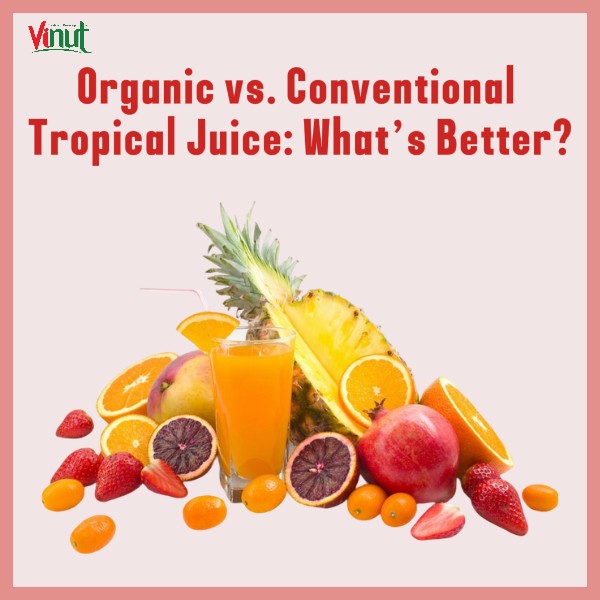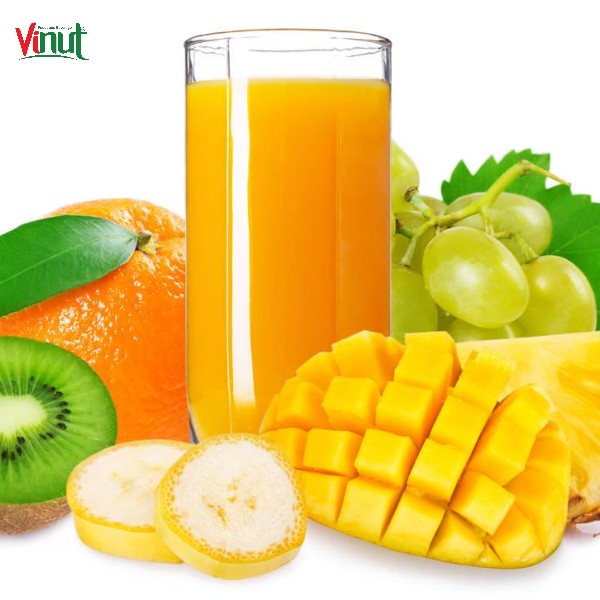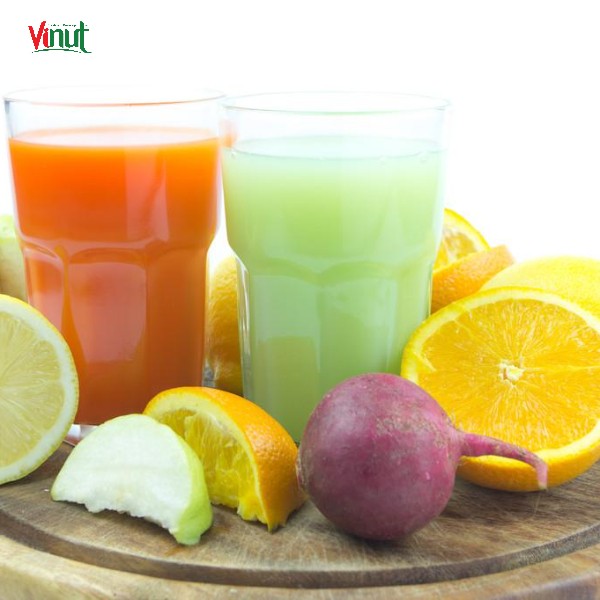
News
Organic vs. Conventional Tropical Juice: What’s Better?
When it comes to choosing between organic and conventional tropical juice, the decision can be as complex as the flavors of the fruits themselves. With a rising awareness of health and environmental concerns, consumers are increasingly scrutinizing their beverage choices. So, what’s better? Organic or conventional tropical juice? Let’s Cojo Cojo dive into the details.

Introduction
Tropical juices, bursting with the flavors of fruits like mango, pineapple, passion fruit, and guava, are a favorite among many. But beyond taste, there’s a significant debate: is organic juice genuinely superior to its conventional counterpart? This article will explore the differences, benefits, and potential downsides of both options to help you make an informed choice.
Understanding Organic Tropical Juice
What Makes Juice Organic?
Organic tropical juice is produced from fruits grown without synthetic pesticides, herbicides, or fertilizers. Organic farming practices emphasize sustainable methods, biodiversity, and ecological balance. These juices are often certified by regulatory bodies, ensuring they meet strict organic standards.
Health Benefits of Organic Juice
- Fewer Pesticides: Organic juices typically have lower pesticide residues, which can be beneficial for health, especially for children and pregnant women.
- Higher Nutrient Levels: Some studies suggest that organic fruits may contain higher levels of certain nutrients, including antioxidants and vitamins.
- No GMOs: Organic juices are free from genetically modified organisms, aligning with the preferences of those concerned about GMOs’ long-term health effects.
Environmental Impact
Organic farming practices aim to reduce pollution, conserve water, improve soil health, and increase biodiversity. By choosing organic juice, consumers can support more sustainable agricultural methods that are gentler on the planet.

Conventional Tropical Juice Explained
Production Methods
Conventional tropical juices are made from fruits grown using modern agricultural practices, which may include synthetic chemicals and fertilizers to enhance growth and yield. These practices are designed to maximize efficiency and cost-effectiveness.
Health Considerations
- Pesticide Residues: Conventional juices can contain pesticide residues, though regulatory bodies set maximum residue limits to ensure safety.
- Nutrient Content: While there’s debate, conventional and organic juices often have similar nutrient profiles. The main difference lies in the presence of synthetic additives and pesticides.
- Affordability: Conventional juices are generally more affordable due to lower production costs and higher yields, making them accessible to a broader audience.
Environmental Concerns
Conventional farming practices can lead to environmental issues such as soil degradation, water pollution, and loss of biodiversity. However, advancements in agricultural technology are improving the sustainability of these practices.

Comparing Taste and Quality
Flavor Profiles
Many consumers believe that organic tropical juices taste better, attributing this to the more natural growing conditions and the absence of synthetic chemicals. However, taste is subjective, and high-quality conventional juices can also deliver exceptional flavors.
Freshness and Shelf Life
Organic juices often have a shorter shelf life due to the absence of preservatives. Conversely, conventional juices may include additives to extend freshness. For consumers prioritizing freshness, organic juices might be the preferred choice, though this can vary by brand.
Nutritional Differences: Fact or Myth?
The debate over whether organic juices are nutritionally superior continues. While some studies indicate higher nutrient levels in organic fruits, others find negligible differences. The key takeaway is that both types of juice offer significant health benefits, with the primary differences being in pesticide residues and farming practices.

Cost Analysis
Price Points
Organic tropical juices tend to be more expensive due to the higher costs of organic farming and certification. This can make them less accessible for some consumers.
Value for Money
When considering value, it’s essential to weigh the potential health benefits and environmental impact against the higher price. For some, the peace of mind and support for sustainable practices justify the cost.
Consumer Preferences and Trends
Health-Conscious Choices
The growing trend toward health-conscious consumption has increased demand for organic products, including juices. Consumers are more informed and willing to invest in their health and the environment.
Market Availability
As demand rises, more brands are offering organic options, increasing availability. However, conventional juices still dominate the market due to their affordability and established production networks.

Regulatory Standards and Certifications
Organic Certifications
Organic juices must meet stringent standards set by regulatory bodies such as the USDA or EU Organic Certification. These standards ensure that the products are genuinely organic and free from prohibited substances.
Conventional Regulations
Conventional juices are also subject to regulations ensuring safety and quality, though these do not prohibit synthetic chemicals and GMOs. Regulatory bodies set limits on pesticide residues to protect consumers.
Environmental and Ethical Considerations
Sustainability
Choosing organic supports farming practices that prioritize environmental health. This includes reduced chemical use, better soil management, and more sustainable water use.
Ethical Farming
Organic farming often promotes fair labor practices, ensuring better working conditions for farmworkers. For ethically-minded consumers, this can be a significant factor in their purchasing decisions.

Conclusion
The debate between organic and conventional tropical juice is nuanced, with valid points on both sides. Organic juices offer potential health benefits and support sustainable practices, but come at a higher cost. Conventional juices are more affordable and widely available, though they may contain pesticide residues and have a larger environmental footprint. Ultimately, the choice depends on your individual preferences and values.
